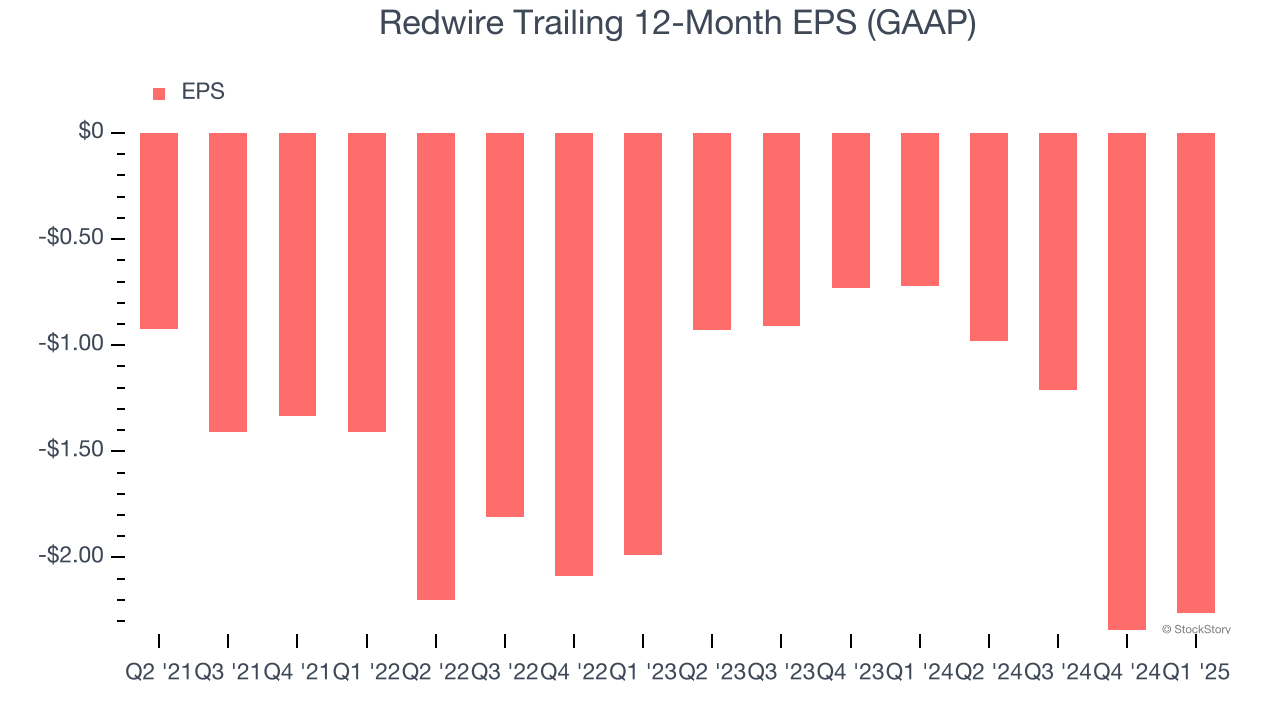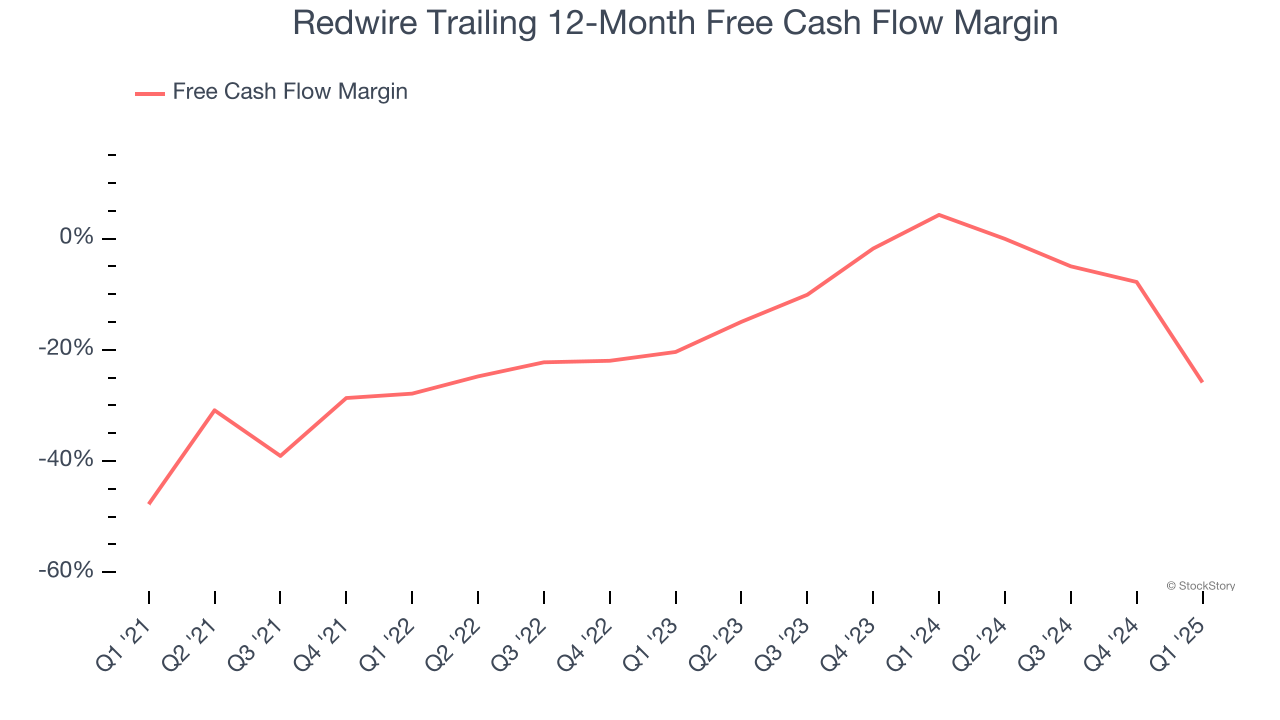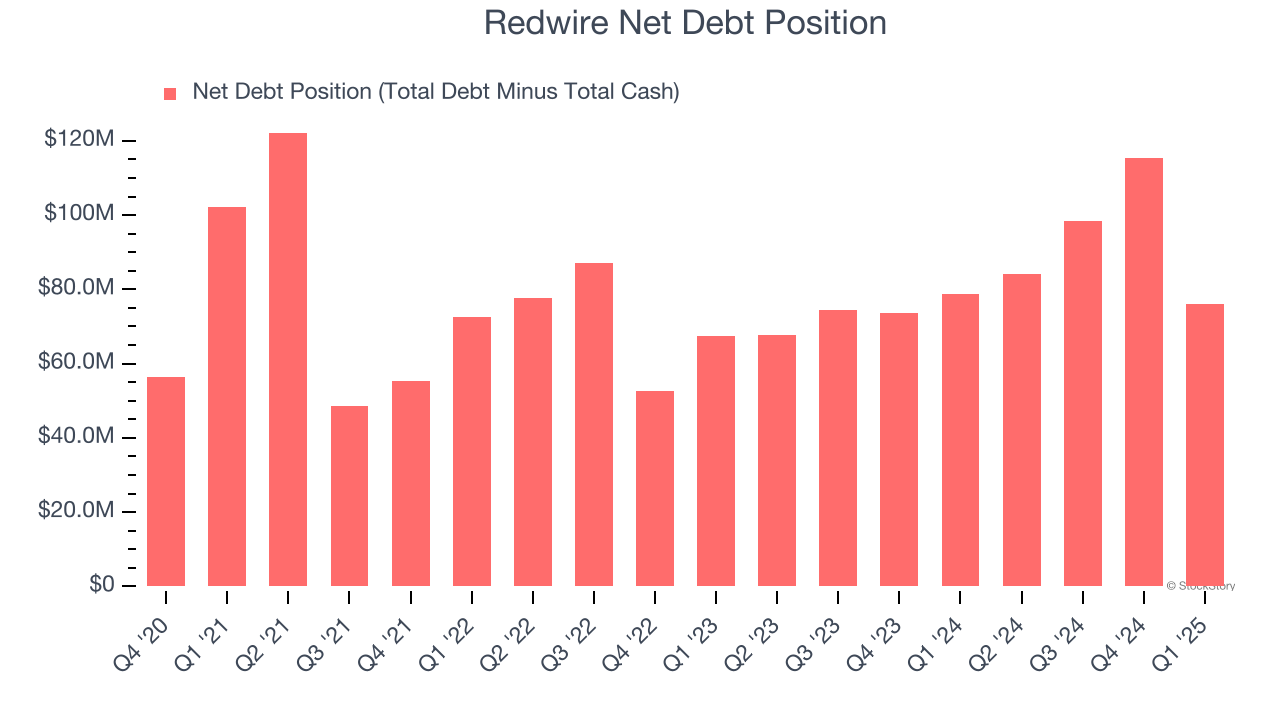
Redwire’s stock price has taken a beating over the past six months, shedding 20.1% of its value and falling to $16.98 per share. This may have investors wondering how to approach the situation.
Is now the time to buy Redwire, or should you be careful about including it in your portfolio? Get the full breakdown from our expert analysts, it’s free.
Why Is Redwire Not Exciting?
Even with the cheaper entry price, we're swiping left on Redwire for now. Here are three reasons why we avoid RDW and a stock we'd rather own.
1. EPS Trending Down
Analyzing the long-term change in earnings per share (EPS) shows whether a company's incremental sales were profitable – for example, revenue could be inflated through excessive spending on advertising and promotions.
Redwire’s earnings losses deepened over the last four years as its EPS dropped 38.9% annually. We tend to steer our readers away from companies with falling EPS, where diminishing earnings could imply changing secular trends and preferences. If the tide turns unexpectedly, Redwire’s low margin of safety could leave its stock price susceptible to large downswings.

2. Cash Burn Ignites Concerns
Free cash flow isn't a prominently featured metric in company financials and earnings releases, but we think it's telling because it accounts for all operating and capital expenses, making it tough to manipulate. Cash is king.
Redwire’s demanding reinvestments have drained its resources over the last five years, putting it in a pinch and limiting its ability to return capital to investors. Its free cash flow margin averaged negative 17.9%, meaning it lit $17.92 of cash on fire for every $100 in revenue.

3. Short Cash Runway Exposes Shareholders to Potential Dilution
As long-term investors, the risk we care about most is the permanent loss of capital, which can happen when a company goes bankrupt or raises money from a disadvantaged position. This is separate from short-term stock price volatility, something we are much less bothered by.
Redwire burned through $71.82 million of cash over the last year, and its $130.4 million of debt exceeds the $54.22 million of cash on its balance sheet. This is a deal breaker for us because indebted loss-making companies spell trouble.

Unless the Redwire’s fundamentals change quickly, it might find itself in a position where it must raise capital from investors to continue operating. Whether that would be favorable is unclear because dilution is a headwind for shareholder returns.
We remain cautious of Redwire until it generates consistent free cash flow or any of its announced financing plans materialize on its balance sheet.
Final Judgment
Redwire isn’t a terrible business, but it isn’t one of our picks. Following the recent decline, the stock trades at 21.2× forward EV-to-EBITDA (or $16.98 per share). This multiple tells us a lot of good news is priced in - we think there are better stocks to buy right now. Let us point you toward the most dominant software business in the world.
Stocks We Like More Than Redwire
Trump’s April 2024 tariff bombshell triggered a massive market selloff, but stocks have since staged an impressive recovery, leaving those who panic sold on the sidelines.
Take advantage of the rebound by checking out our Top 6 Stocks for this week. This is a curated list of our High Quality stocks that have generated a market-beating return of 183% over the last five years (as of March 31st 2025).
Stocks that made our list in 2020 include now familiar names such as Nvidia (+1,545% between March 2020 and March 2025) as well as under-the-radar businesses like the once-micro-cap company Tecnoglass (+1,754% five-year return). Find your next big winner with StockStory today.
StockStory is growing and hiring equity analyst and marketing roles. Are you a 0 to 1 builder passionate about the markets and AI? See the open roles here.




